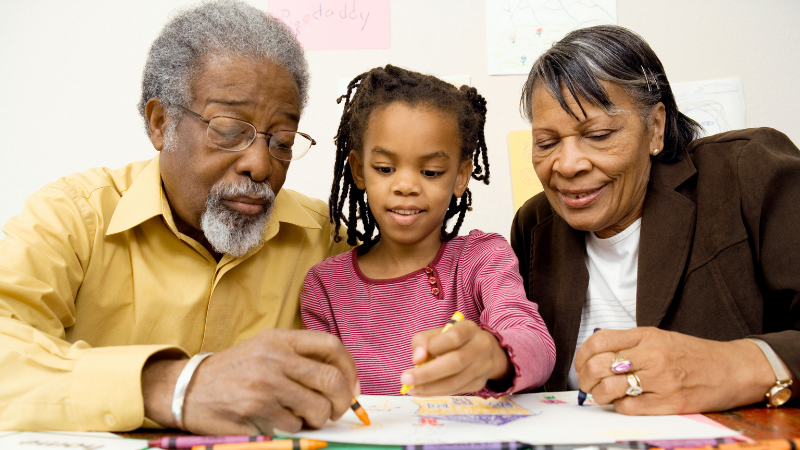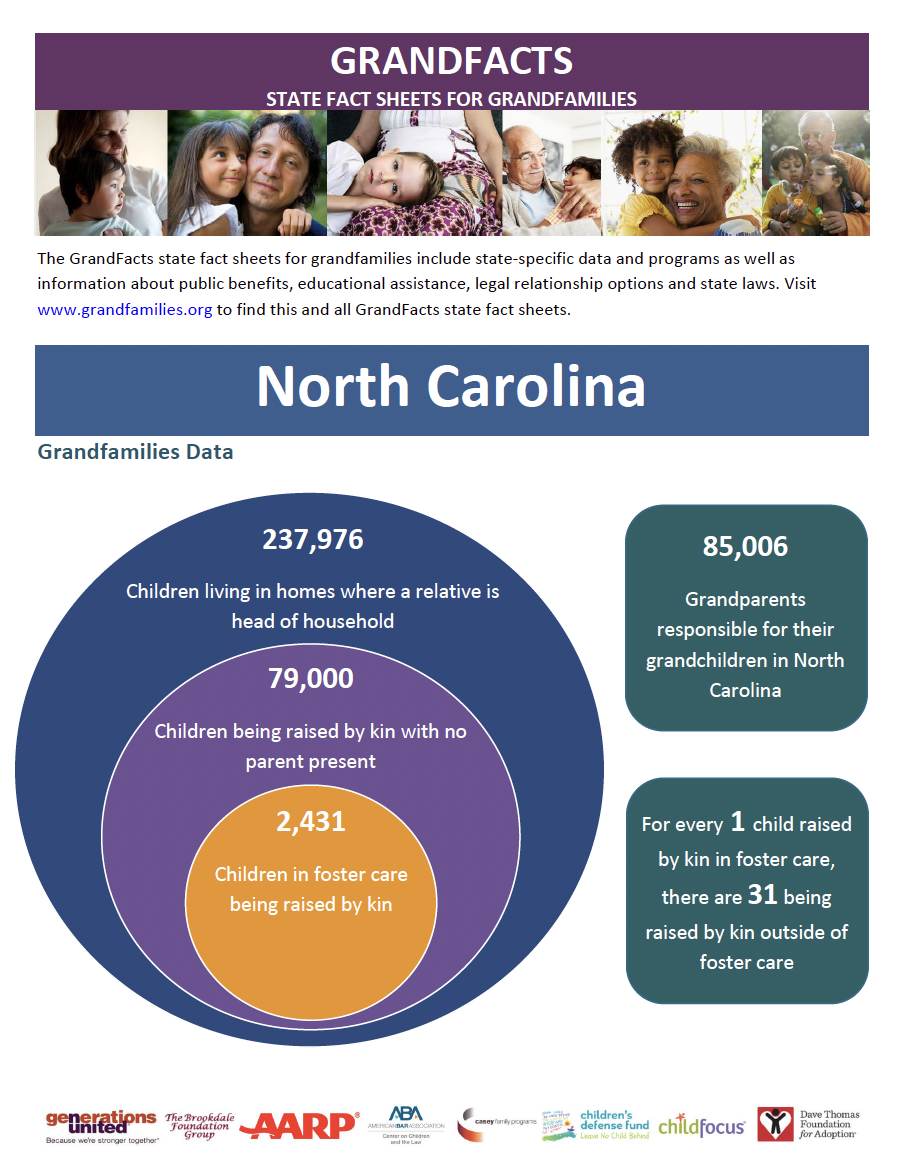Kinship Care
Sometimes life has challenges that can lead to circumstances that can cause children to temporarily leave their biological parents' home. For families, this transition period can be filled with uncertainty and overwhelming feelings. There is so much information on navigating how to properly support your loved ones that it can feel like information overload. What sources can you trust? What should you do? How can you get started? These are questions many caregivers have asked at some point. Although it may seem at first like there is nowhere to begin, navigating the North Carolinian supportive services will be smoother with support. Below are some introductory resources and information to help you begin your new journey as a kinship parent.
Introduction to Kinship Care: Why Kin Matters
Below are some resources and recommendations to assist you in supporting your kin.
Glossary
-
Kinship: When a child lives with and is cared for by a relative or close family friend (sometimes called "fictive kin") when their parents are unable to do so.
-
A specialized type of foster care where a child is placed with relatives or close family friends who receive additional training and support to meet the unique needs of children with trauma histories.
-
A legal process in which a family member, such as a grandparent, aunt, uncle, or older sibling, adopts a child who is related to them.
-
A type of foster care in which a child welfare agency or court places a child with a relative or other close, familiar adult when the child cannot live with their parents due to issues like abuse or neglect. This formal arrangement involves a court or agency determination that the child needs to be separated from their parents and placed in legal custody with the agency or a relative.
-
A family-led arrangement where a child lives with a relative or close family friend because the parents are unable to care for them, without any involvement of the state's child welfare or legal system.
-
DSS serves as the legal guardian that oversees the case and is responsible for working with the child, birth parent, kinship caregiver, and private licensing agency staff. The DSS social worker needs to be consulted on any major decisions concerning the child, such as medical treatment, psychiatric treatment, medication, school decisions, visitation with parents or extended family, etc. Please refer to the Prudent Parenting information in the resource section of this guide that discusses the tasks for which DSS has to provide consent.
-
A GAL will be appointed by the court to help be a voice for the child. The GAL will meet with the child to understand their perspective and will advocate for what they feel is in the best interest of the child. The GAL is present at court hearings and most team meetings.
-
The private agency staff works in partnership with the kinship caregiver, DSS Social Worker, child, and parent to ensure that all parties are working in partnership. Private agency staff will provide the daily support to the kinship caregiver and the training that is needed to provide ongoing care and to maintain the license. For this pilot, the private agency is responsible for licensing the kinship caregivers and helping them maintain their license.
-
Kinship Navigator Programs are a social services program that connects families to their communities’ supports, services, and resources. They help families determine what other programs and services they qualify to receive.
-
Those who have a “family-like” relationship with the child and who provide unconditional support.
-
The development and maintenance of strong, supportive, and lasting relationships for children and youth, particularly those in the foster care system
-
The action of representing oneself or one's views or interests.
-
A deeply collaborative relationship built on mutual trust, respect, and shared goals, where all partners participate equally in decision-making, share responsibilities, and are valued for their unique contributions and perspectives.
-
A self-care plan helps you identify strategies to care for yourself before you get overwhelmed.
Resources
Deciding to care for a child or children is a crucial step in becoming a kinship caregiver. Whether you are a grandparent, sibling, concerned family member, or a trusted adult, providing care requires commitment and patience to make sure your loved ones' wellness needs are met, as well as your own.
For more information, click the link to learn more about making the decision to become a kinship caregiver and your options HERE.
Click HERE to download this fact sheet for Grandfamilies
FAQ's
FAQ's
-
Check this resource out to learn more about the status of Child Welfare Involvement.
-
Depending on your location and the social services available, there may be services that kinship caregivers can utilize. For licensed foster care, there are monthly payments until the child turns 18 or permanently leaves the home.
-
In temporary care with an open case, yes, until the child is removed from home or the case is closed.
-
Please review the table for guidance on benefit types and how it may or may not be affected.
-
In North Carolina, becoming a licensed kinship caregiver provides greater access to financial assistance, such as a higher monthly board payment and KinGAP (Kinship Guardianship Assistance Program) for long-term care, training in trauma-informed care, a dedicated social worker for support, and assistance with parent visitations. While it's not required, licensing offers these critical resources that are not available to unlicensed kinship caregivers, helping to stabilize the child's placement and ensuring their well-being and permanency.
-
Kinship navigator programs offer information, referrals, and follow-up services to kin caregivers to link them to benefits and services that can support them and the children they raise.
-
Department of Social Services Local County DSS Directory
-
If you want to discuss your ability to foster, please call the hotline at 888-625-4375 or email nc.kids@dhhs.nc.gov
-
Based on your address, this website will allow you to find schools https://www.greatschools.org/school-district-boundaries-map/
-


